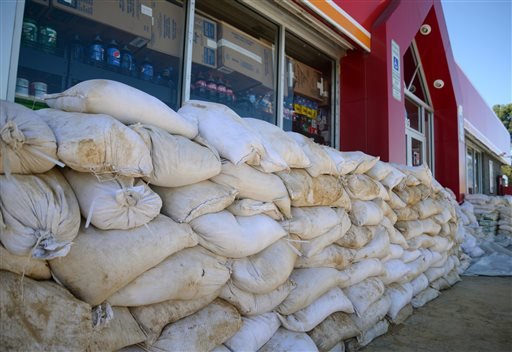GREENVILLE, N.C. — Police officers and firefighters in eastern North Carolina cruised low-lying areas and shouted a simple message from bullhorns: Get out before the floodwaters from Hurricane Matthew arrive.
Thousands of people were ordered to evacuate, and officials warned that some communities could be cut off by washed out roads or bridge closures. In the city of Greenville, military trucks rumbled through leafy neighborhoods where orange traffic cones and police tape discouraged people from entering. Police were stationed at the edge of the evacuation zone to monitor who came and went.
Authorities planned to go door to door in some areas, telling people to escape to higher ground. The flooding triggered by heavy rain from Matthew — which killed more than 500 people in Haiti — has left at least 35 dead in the U.S.
"There are a lot of people that are hurting, that are living in shelters and are preparing for major, major flooding," North Carolina Gov. Pat McCrory said Wednesday.
Authorities closed one bridge across the swollen Tar River in Greenville and warned that several other bridges could close, isolating people. The city's airport was expected to remain closed for another week due to flooding.
Still, Greenville resident John Benson felt confident his house would be OK. His block didn't take on water during Hurricane Floyd in 1999, and his street is on a steep grade, making a quick getaway possible.
"Police, fire people, came around, bull-horning and talking to us. They let everybody know to get out," he said.
Flooding conditions in Fayetteville were expected to last until Friday, while the Neuse River in Kinston was expected to peak Saturday.
"We want you to evacuate these low-lying areas absolutely and immediately," Kinston Mayor BJ Murphy told WITN-TV on Wednesday. "The time to get out is now."
Read Thursday's Arkansas Democrat-Gazette for full details.
